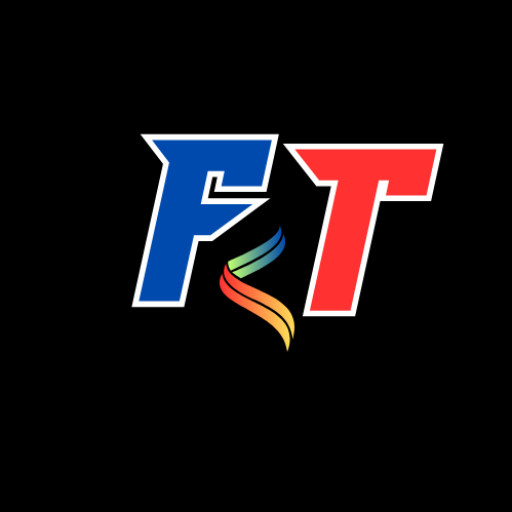
In today’s digital landscape, producing high-quality, engaging content is crucial for brands to stay competitive. However, as the demand for content rises, so does the need for efficiency in managing, creating, and distributing it. Enter AI: a revolutionary tool that’s transforming content strategies across industries. This article dives into the Content Backbone with AI, exploring how artificial intelligence is reshaping the ways businesses approach content, from AI-driven content creation to AI-powered content optimization.
Introduction
Artificial intelligence has permeated various aspects of content management, fundamentally altering how we approach everything from ideation to execution. Today, businesses are leveraging AI-driven content creation tools to generate ideas and produce content at an unprecedented speed. In this article, we’ll explore how AI serves as the backbone of a successful content strategy, examine key technologies like natural language processing for content, and discuss how AI enhances content lifecycle management with AI. With data-backed insights, AI is helping brands deliver more personalized, targeted content that connects with their audience like never before.
1. AI-Driven Content Creation: Streamlining the Writing Process
AI-driven content creation enables businesses to generate vast amounts of content quickly and accurately. By using machine learning for content, these tools analyze patterns in existing data and generate new content that aligns with a brand’s tone and style. Automated writing assistants powered by AI can craft blog posts, product descriptions, and social media updates, freeing up human creators to focus on more strategic tasks.
2. Content Strategy with AI: Building a Data-Driven Approach
Developing an effective content strategy often involves a large amount of data analysis, something AI excels at. Through data-driven content strategies, AI can recommend the best topics based on trends, audience behavior, and keyword performance. This process, known as predictive content insights, provides businesses with a clear direction for their content creation efforts, ensuring that each piece resonates with the target audience.
3. AI Content Management: Enhancing Efficiency Across Teams
With AI at the helm, AI content management systems can organize and optimize content workflows, automating repetitive tasks and managing large repositories of assets. AI-based content analysis tools can also monitor performance metrics, giving marketers insights into what works and what doesn’t. In turn, AI optimizes the creation and distribution process, creating a streamlined workflow that reduces bottlenecks and enhances productivity.
4. Automated Content Generation: The Future of Content Creation
Automated content generation is rapidly evolving, allowing AI to produce entire articles, reports, and even creative writing based on pre-set parameters. These AI-generated drafts can be refined by human writers, ensuring a perfect balance between speed and quality. Automated content creation helps businesses produce relevant content at scale while saving time and resources.
5. AI in Content Marketing: Transforming Campaign Effectiveness
Integrating AI in content marketing amplifies a brand’s reach by tailoring messages to the right audience at the right time. By analyzing data, AI can create personalized content with AI to deliver highly targeted marketing materials. This level of personalization increases user engagement, encourages conversions, and strengthens customer loyalty.
6. Content Planning Tools with AI: Simplifying Ideation
Content planning tools with AI make ideation faster and more efficient by offering suggestions based on data analysis, seasonal trends, and audience preferences. With AI-generated topics and content outlines, marketing teams can save time on brainstorming sessions and focus on crafting quality content that meets audience demands.
7. AI-Powered Content Optimization: Enhancing Searchability
To make content discoverable, AI-powered content optimization tools analyze search trends, keywords, and user behavior. AI optimizes text, images, and metadata, ensuring content ranks highly on search engines. This process also enhances user engagement by delivering relevant, easily searchable information that matches users’ intent.

8. Data-Driven Content Strategies: Informing Every Decision
Data-driven content strategies rely on AI to analyze vast amounts of data for meaningful insights. With data analytics for content marketing, businesses can measure the effectiveness of each content piece and identify areas of improvement. These insights inform strategy adjustments and ensure content consistently resonates with the target audience.
9. AI-Based Content Analysis: Gaining Insight into Performance
Through AI-based content analysis, brands can understand how their content performs across platforms and campaigns. AI identifies which content types, formats, and distribution channels drive the most engagement, helping marketers refine their strategies. Content performance metrics with AI give businesses a granular look at what makes their content successful.
10. AI and Digital Content Workflows: Automating the Process
Digital content workflows benefit significantly from AI’s ability to automate time-consuming processes. AI and digital content workflows enhance efficiency by streamlining content review, approval, and publishing stages. This optimization is particularly beneficial for large teams, enabling them to keep projects on track and meet deadlines effectively.
11. Personalized Content with AI: Reaching Audiences on a Deeper Level
Personalization is a core component of modern content strategies, and personalized content with AI makes it possible to tailor messaging to individual preferences. By analyzing past behavior, AI recommends content likely to appeal to each user, creating a unique experience that increases engagement and loyalty.
12. AI-Enhanced Content Distribution: Expanding Reach
AI optimizes AI-enhanced content distribution by determining the best times, platforms, and formats for content. AI identifies audience segments and distribution preferences, ensuring each post reaches its intended audience, thereby maximizing impact and minimizing resource waste.
13. Intelligent Content Recommendations: Engaging Users with Relevant Suggestions
Through intelligent content recommendations, AI helps keep users engaged by presenting related content based on their interests. This is often seen on streaming platforms, but the same principles apply to blogs, e-commerce sites, and other digital media.
14. Content Lifecycle Management with AI: Overseeing Content from Start to Finish
From initial planning to final publication, content lifecycle management with AI oversees every stage of the content creation process. AI-powered tools manage each phase, reducing redundancies, ensuring consistency, and providing data-backed insights to drive decisions.
15. Predictive Content Insights: Anticipating Future Trends
Predicting trends can help businesses stay ahead of the curve, and predictive content insights powered by AI do just that. By analyzing data patterns, AI can forecast future content topics, guiding brands toward creating timely and relevant content.
16. Content Performance Metrics with AI: Measuring Success Accurately
AI provides detailed content performance metrics with AI by tracking clicks, shares, conversions, and engagement rates. This data helps marketers understand their audience’s preferences and refine their strategies for improved results.
17. AI-Driven Editorial Processes: Improving Content Quality
AI-driven editorial processes ensure content quality by assisting with fact-checking, grammar, and style adjustments. AI-based editors scan drafts for errors and improve readability, ensuring that each piece aligns with brand guidelines and audience expectations.
18. AI for Audience Targeting: Reaching the Right People
AI for audience targeting identifies the right audience for each content piece, optimizing its impact. By analyzing user demographics, interests, and behavior, AI tools deliver content to those most likely to engage, boosting conversion rates.
19. Streamlined Content Creation with AI: Improving Workflow Efficiency
By reducing manual tasks, streamlined content creation with AI enables faster production cycles. With AI handling mundane tasks, content teams can dedicate more time to creating valuable and engaging content.
20. Natural Language Processing for Content: Understanding User Intent
Natural language processing for content enables AI to interpret human language, making it possible for AI tools to craft more natural, engaging text. NLP also improves searchability, as it can better match content with search engine algorithms.
21. Content Automation Solutions: Simplifying Repetitive Tasks
Content automation solutions streamline repetitive tasks such as scheduling, posting, and reporting. By automating these functions, businesses save time and ensure content is consistently distributed across channels.
22. AI-Powered SEO Tools: Enhancing Content Visibility
AI-powered SEO tools offer guidance on improving content visibility by analyzing search trends, keywords, and competitor data. These tools provide actionable insights that help businesses optimize their content for higher search engine rankings.
23. AI for Content Ideation: Generating Fresh Ideas
AI for content ideation offers suggestions based on what’s trending and resonating with audiences. This insight empowers content teams to focus on topics with the potential to engage and convert readers.
24. Data Analytics for Content Marketing: Measuring and Optimizing Impact
Finally, data analytics for content marketing helps businesses measure campaign success and adjust strategies accordingly. By analyzing engagement data, AI provides insight into audience preferences and identifies opportunities for improvement.
For more interesting blogs, visit our site: https://futuretrendz.co.uk/
Conclusion
The Content Backbone with AI is reshaping how brands approach every stage of the content journey. From AI-driven content creation to data-driven content strategies and content automation solutions, AI provides efficiency, personalization, and insights that empower businesses to make smarter, faster decisions. As technology advances, the role of AI in content management will only grow, helping brands stay competitive in an ever-evolving digital world.
FAQs
- How does AI help in content creation?
- AI streamlines the creation process by generating ideas, writing drafts, and editing, which reduces time and effort for content teams.
- What are the benefits of AI-driven content optimization?
- AI optimizes content for search engines, increases engagement, and ensures each piece reaches the target audience effectively.
- How does AI enhance content distribution?
- AI identifies the best platforms, times, and audience segments, ensuring content reaches the right people at the







